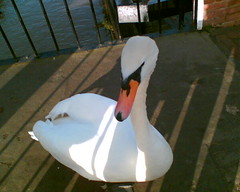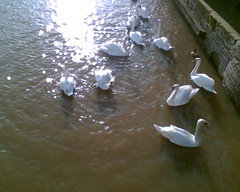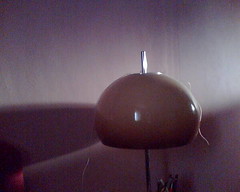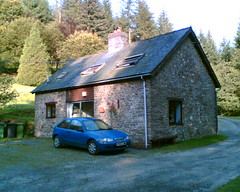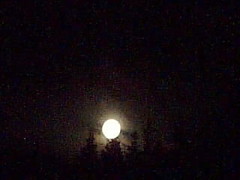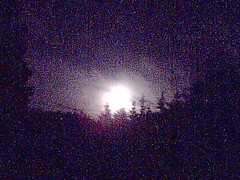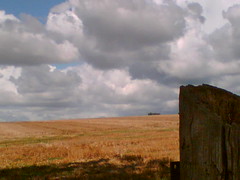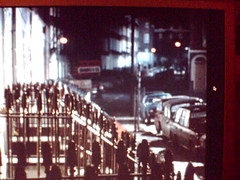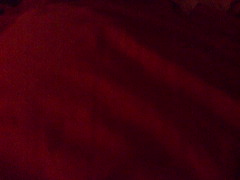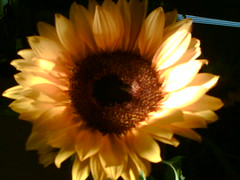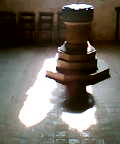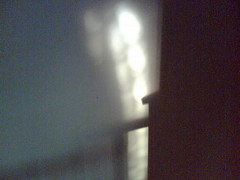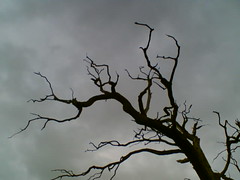Gabriella half-pissed rant fragment – for somewhere...
The central paradox, it seems to me, comes down to this: one, you look at the world around you every day, at all scales, and it’s boring and hard and ugly and plain fucking brutal for most – especially for the people who don’t live in our cosy, economically dominant little Western/Northern bubble, with our historically supreme capitalist system of accumulation; two, all the books you read, and all the songs you listened to – no,
heard up to age twelve, and all the films and comic books and television programmes you looked at, and all the things adults said to you – if you were lucky, and if they were kind, – they all told you that the world was fair, and that things worked out all right in the end, and that good people got their just rewards, and bad people got paid off and punished. And you have to resolve that paradox for yourself, using a set of values and taught/absorbed rules that just don’t equip you for the random, meaningless, empty truths of the world – all the stuff about emptiness, and injustice, and realpolitik, and power and cynicism and brutality and death, and the irreducible differences between belief systems.
And it’s because you can’t escape that taught set of rules and assumptions that resolving the paradox is so difficult – you’ve got this emotional commitment to fairness and rationality programmed deeply into you, and your rational mind is yelling at you to reject it and let it go, but your emotional self is screaming back saying ‘no no no – without that trust and faith in the world, you’ve got nothing, nothing.’ And you’ve spent the first twenty or so years of your life either thinking all that sentimental stuff was true (or at least clinging on to it as a romantic ideal), and it’s so, so hard to let it go, because you have no idea how you’ll orient yourself towards the world, how you’ll reconstruct your life with an alternative, realistic worldview without becoming cynical, bitter, acidic, hopeless and misanthropic. Fucking cheated.
Christ.Denis - from the 'dark' novel...
That Sunday, when mama had stood at the sink peeling potatoes in the cold water and told him to go away and leave her alone, he had stood outside their apartment door in the still gloom of the afternoon, hearing the muffled sounds of families behind their closed doors, smelling the smell of their green vegetables boiling, and sniffing up his own tears and run snot, trying to clear his head of emotion and upset before he has to expose himself to the world. His tears and self-pity only live in these certain small spaces: the hallway, the gloom of their doorway, his bedroom in the dark, the lavatories in the playground at school after a bigger boy has hit him or humiliated him.
He thinks he’ll walk in his usual direction: up the street towards the main road, the park, the city beyond. He can take a shortcut through the hole in the chain link fence on [Bahnhofstrasse] and go play in the wasteland where the lead factory used to be, where the stone pavements are cracked and rain stained, and where nobody ever goes, except the kids like Denis who want to play on their own, and bigger boys who want to be somewhere where there are no adults. The weeds are already high there, grown up like hedges, and you can find spots where you can lie down and be invisible while the sky blows across the space between the weeds’ waving seed heads. Somewhere to be alone, where no-one else can reach you or touch you.
The hallway is empty, the well of it opening out into the darkened space around which the doorways all cluster on the balconies rising up to the roof.
The apartment building’s sounds are familiar to him: the sound of his boot soles descending the bare wooden staircase echoing up into the stairwell to dissipate there in the shadows. But as he reaches the last turn of the staircase, he recognises the sound of the main street door handle rattling and the door opening inward. He hangs back on the stairs, in the shadow of the [banister post??], not wanting to be seen, and hears the door close, followed by the sound of shoes shuffling across the linoleum. Once he gauges that the person has passed, he leans around and looks past the [banister post??]. There’s an old man standing right in front of him at the foot of the stairs, getting his breath back and mopping sweat from his tall forehead. He’s holding his hat in his other hand. He sees Denis’ face and says, “Good afternoon, young man. And how are you?”
Denis looks back at the old man, wide-eyed, but says nothing. The old man has a smart three-piece suit on under his overcoat. He also has thick, heavy-rimmed glasses, and the stereotypically large nose with big flaring nostrils.
He’s a Jew, thinks Denis. I shouldn’t talk to him. But what’s he doing here?
“Are you all right, young man? You look a little…strange – upset?”
Denis speaks at last: “No, I’m not upset, not at all.”
“I’m very pleased to hear it,” {He’s talking like Rabbi Lionel Blue, I think, in my head…}, “I don’t like to see young people upset. Life is long enough for sorrows enough, and I recommend that you put them off for as long as possible.”
“Oh.” Denis has never heard anyone talk like this: he thinks that it’s kind of sugary and false, but…he quite likes the sound of it, the way the words flow together and the rise and fall of the old man’s voice. He smiles involuntarily, hoping that the old man will say something else. He still feels like he shouldn’t be talking to this Jew, but there’s something holding him here.
“Ah, sorrows,” the old man goes on, “they are both our misery and our salvation.”
Denis feels like there should be more to follow this statement, but nothing else is forthcoming. The old Jew looks down at him, smiles, and then raises his hat again (?) before turning away and walking across the [vestibule]. Denis watches him go, wanting to say something – ask a question, perhaps – that will make him stay a little longer: while the old man is there, talking, Denis doesn’t have to think or reflect on anything – he can be led, and advised, and informed. [obviously he’s still at the stage where he thinks that any adult must know infinitely more than he does, and thus that these adults have inherent authority…]
Outside, it’s a typical gloomy Sunday. The street is quiet, with the usual Sunday afternoon torpor, the suspended space between (a) the working population’s belief in the infinity of rest that seems to stretch ahead of them on Sunday morning, and (b) the eight PM realisation that their shirts aren’t ironed, the chores aren’t all finished, and they’ll have to be getting out of bed for work again in nine hours’ time.
There are a few people on the streets, but all of the shops and cafes are closed, and the blank glass shop fronts and empty pavements make Denis feel more comfortable in these public spaces – as if he owns them in some way. It gives him an unusual confidence as he pushes his face against the shop windows, cupping his hands around his eyes so that he can see as much of the interiors as possible: washed butcher slab tiles; pale yellow fly papers suspended from the ceilings, carrying their loads of dead and decaying insects; shadowy back rooms seen through doorways and lit by small, barred windows; and sweet shops with their sterile rows of fat glass jars, the colours of all the sweets dimmed in the shadows.
Further along, the shopping streets give way for a while to some more open areas, flanked by grass- and tree-planted green spaces with benches and flower beds, and sometimes a small bandstand or an overscale chess set.
